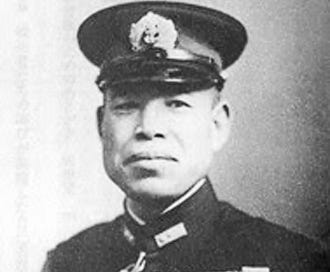Since I started reading military history when I was ... well ... able to read ... there have been two types of leaders that I have always found interesting at moments when all is lost. One represents the worst example, and one is the best.
When I say, “all is lost,” I'm not talking about fighting retreats or "Horatius at the Bridge" situations when forces are engaged in holding actions to buy time, but those moments when defeat is a forgone conclusion. There is no real hope for victory but a leader has to make decisions as to what they are willing to do and sacrifice - not just themselves, but for those they lead.
If they decide to continue to fight or carry out their duties in spite of the inevitable, what do they do and how do they lead the forces under their command? Where do they place their desires/duty to themselves versus the responsibility for those who they lead, those who believe in them and trust them?
Tough situations, I believe, don't build character - they reveal character. In this extreme situation, the character of a leader is revealed in clear, stark contrast.
With that foundation, let's explore a small subset of leadership examples, with a focus on a war inside the edge of living memory; WWII.
Let's start with one example of the bad leader: Admiral Seiichi Itō, Imperial Japanese Navy.
Itō was the leader of Operation Ten-Go, the suicide run of the battleship Yamato with her escort of a light cruiser and eight destroyers. While one can take in to considerations his culture as an excuse, the record shows that he knew this was suicidal. He opposed the mission at first, but then agreed to lead it. This was about his honor, his duty and it appears, his death. Though Japanese, he was an educated, modern man of the mid-20th Century. It is fair to judge him by modern standards. As a senior leader, he knew what few of the people who served under him knew; the war was lost and there was no chance for success. Only a fool say success for the mission at even a tactical level, much less on operational or strategic one. As a result, over 4,000 Japanese Sailors died with him in a vain, inglorious display of false-military honor. Nothing could be gained. Only senior leaders' vanity fed. Itō in his last moment of power, in a radiant moment of sociopathic narcissism, got his "warrior's death" - but needlessly clawed over 4,000 lives down with him; lives dedicated to their duty to trust and follow their leader.
Now the good leader, Kapitän zur See Hans Langsdorff, Kriegsmarine.
Langsdorff fought the good fight in the South Atlantic alone as Captain of the pocket battleship Admiral Graf Spee. In the Battle of the River Plate against the Royal Navy cruisers HMS Exeter, Ajax and Achilles, he retired with his damaged ship to the neutral port of Montevideo, Uruguay. Damaged, far from home and trapped by the Royal Navy, he had limited options given the information he had at the time. He could try to fight his way out where, even if he succeeded, it was very unlikely his damaged ship would survive the trip back to friendly waters. He could also find some way to preserve life and honor. Of his roughly 1,100 Sailors under his command, he already had 96 killed, less than the British. In spite of what was coming from Berlin, he put all but a skeleton crew ashore and got underway to scuttle the Graff Spee in the estuary of the River Plate. Sadly and unnecessarily, he committed suicide alone, but he did not take those who trusted him, followed him, and believed in him, on some mindless death charge. He knew his cause was lost, had his own sense of duty, but he also had an understanding that part of being a leader is to look after your Sailors. Your Sailors will fight with you and die with you - willingly - but all they ask of a leader is to make sure it is not in vain.
Arrogance. Vanity. Honor. Duty. Morals. Ethics. Laws.
Leadership is hard and there is nuance in difficult situations, but at least for me there is one foundational concept of a good leader - humility.
Humility requires self-reflection of your place, mindset, motivations, and responsibilities. All leaders have a bit of arrogance as well - we are humans - and optimistic confidence. If not leavened with humility, it drifts in to the darkest areas of the human condition.
History should and usually does harshly judge leaders who by acts of commission or omission lead their followers in to vain, pointless, and destructive actions that are hopeless and provide no reasonable chance of gain, good, or value from sacrifice of life, liberty, or future prosperity.
One does not have to go to war for examples of good or bad leaders. We can find them in our personal, professional, and even political worlds.
Finally, if you think this post is related to Trump, you're right. It is. In inciting the radical fringe of his supporters through his reckless behavior and words, he firmly put himself in the Itō category. He betrayed his followers. He betrayed his office. He will be judged harshly by history, and he has no one but himself to blame.






Great writing today. It is unfortunate that so many of your regulars at the blog are doing nothing but deflecting from the fact veterans and AD military were involved with this coup attempt.